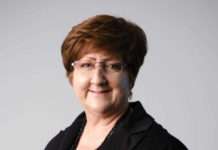The South African education system faces numerous challenges and shortcomings that perpetuate an ongoing crisis in education. Despite substantial public expenditure on education, South Africa finds itself in a continuous education crisis.
The findings of the 2021 Progress in International Reading and Literacy Study (PIRLS) underscore the severe impact of Covid-19 on learning in South Africa with a disturbing 82% of grade 4 learners unable to read for comprehension. The country’s average PIRLS score dropped significantly from 320 in 2016 to 288 in 2021, placing South Africa at the bottom among all 50 participating countries in the PIRLS assessment.
Literacy in South Africa – A Generational Catastrophe
The PIRLS 2021 findings unveil what is characterised as a ‘generational catastrophe.’ Over 4 million primary school children have encountered significant disruptions for more than half of their educational journey, whether due to school closures or rotating timetables, considerably hampering their learning progress.
The Covid-19 pandemic has wiped out a decade of progress, leaving only 18% of learners potentially able to read with understanding by 2033. Furthermore, half of the learners in public schools do not acquire basic alphabet skills by the end of grade 1.
South African Grade 9 learners ranked 38th out of 39 countries in the International Association for Evaluation of Educational Achievements mathematics assessment and performed last in science in 2018.
25% of matriculants fail their final exams, approximately 50% of learners drop out before completing matric, and less than 5% of primary school starters eventually achieve a tertiary qualification.
What measures can be taken?
The ongoing literacy challenges in South Africa demand the swift adoption of a creative, problem-solving strategy that ventures beyond conventional methods complemented by clear and effective monitoring and evaluation procedures.
To tackle the educational crisis in South Africa effectively, it is imperative to explore policy recommendations and regulatory measures that foster collaboration across different sectors. This approach will not only serve as a means to showcase successful models of cross-sector cooperation but also pinpoint investment opportunities for various stakeholders, encompassing both public and private entities. Consequently, it will establish a comprehensive framework defining the roles and expectations of stakeholders in diverse sectors, while also guiding the prioritisation of leadership development in critical areas like literacy. Instead of relying solely on government subsidies, it is essential to foster an innovative, collaborative approach that involves co-creation and transdisciplinary efforts among the private and public sectors, civil society, and the government.
Prior to participating in international standard rankings, it is advisable that South Africa establishes a comprehensive national assessment plan that aims to enhance our understanding of global trends.
#BackOnTrack initiative
In the Western Cape, a strategy has been implemented to address the issue of reading across all grades. This strategy involves training teachers and providing them with workbooks and other instructional materials, with the goal of enhancing their teaching abilities and improving reading outcomes. It will be desirable to create a national reading plan and allocate funds to a national reading budget plan.
The PIRLS results unequivocally demonstrate that the pandemic has substantially eroded the progress made in previous years, jeopardising the future of the youngest learners. That is precisely why the Western Cape is allocating an additional R1.2 billion to the #BackOnTrack initiative over the next three years. This investment aims to enhance learning outcomes across all educational stages, ensuring a brighter future for the children of the Western Cape.
Based on the PIRLS results of the systemic tests, 333 schools in the Western Cape have been chosen to receive specialised assistance, in addition to the 1,100 schools that have been receiving extra support in the Foundation Phase since 2022. The newly selected schools will encompass 126 000 learners, 8 980 teachers and 28 000 parents who will be the focus of targeted participation, adding to the 310 000 learners and 10 000 teachers who are already taking part in the Foundation Phase.
As parents and as a nation at large, it is crucial to cultivate a reading culture where reading is celebrated, honoured and promoted. Reading should be at the core of the curriculum as it plays a vital role in a child’s individual, social and academic accomplishments, as well as their overall well-being.
About the author
Dorcas Dube–Londt serves as the National Marketing and Communications Manager at Citizen Leader Lab. She is a seasoned researcher and scholar known for her dedication to education, leadership and social justice causes, earning numerous accolades and recognition over the years. Dorcas holds a Master’s degree in Strategic Communication from the University of Johannesburg.












